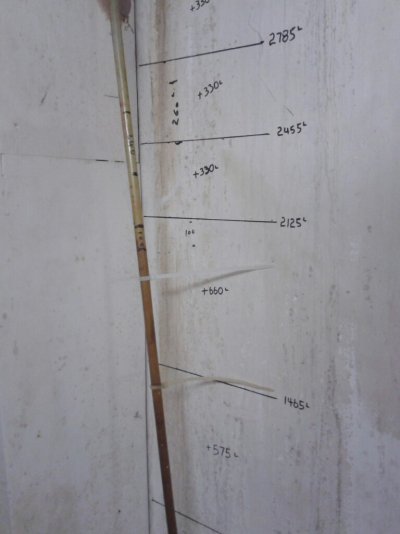Hello,
I'm new to these forums, but not to boats and electronics. I've been out of the marine electronics world for a while now, and am planning my Great Loop adventure to begin over the next couple of years.
As I have been reading, one of the most talked about topics is fuel efficiency.
I'm curious if there are specific fuel economy monitoring solutions on the market today, and if anyone is using something that provides a good indication of "real-time" gallons-per-hour and miles-per-gallon? It would also be good to have a profile for a boat that allows you to see the predicted trade-offs of speed and fuel efficiency.
Doing my research, it seems that if a good system had access to the fuel consumption rate (simple fuel-line flow sensor) and then your speed-through-water (SWT), and speed-over-ground (SOG), then you could easily collect the data required to create a boat profile, and offer suggestions on optimal fuel economy. Eventually, you could also create a throttle control integration that would allow you to set the throttle based on desired fuel efficiency, instead of RPMs, etc.
Overall, this would provide a very good idea of the characteristics of the engines and boat, and all anyone to understand the trade-offs of speed vs. fuel consumption.
I know that many people would ask "Why bother?" ... but this is what I do for a living, and I love technology and boats.
Anyhow ... I was curious about inexpensive solutions that would do this, if any exist, and also to hear feedback from boaters who might have thoughts about this more.
Scott
I'm new to these forums, but not to boats and electronics. I've been out of the marine electronics world for a while now, and am planning my Great Loop adventure to begin over the next couple of years.
As I have been reading, one of the most talked about topics is fuel efficiency.
I'm curious if there are specific fuel economy monitoring solutions on the market today, and if anyone is using something that provides a good indication of "real-time" gallons-per-hour and miles-per-gallon? It would also be good to have a profile for a boat that allows you to see the predicted trade-offs of speed and fuel efficiency.
Doing my research, it seems that if a good system had access to the fuel consumption rate (simple fuel-line flow sensor) and then your speed-through-water (SWT), and speed-over-ground (SOG), then you could easily collect the data required to create a boat profile, and offer suggestions on optimal fuel economy. Eventually, you could also create a throttle control integration that would allow you to set the throttle based on desired fuel efficiency, instead of RPMs, etc.
Overall, this would provide a very good idea of the characteristics of the engines and boat, and all anyone to understand the trade-offs of speed vs. fuel consumption.
I know that many people would ask "Why bother?" ... but this is what I do for a living, and I love technology and boats.
Anyhow ... I was curious about inexpensive solutions that would do this, if any exist, and also to hear feedback from boaters who might have thoughts about this more.
Scott

